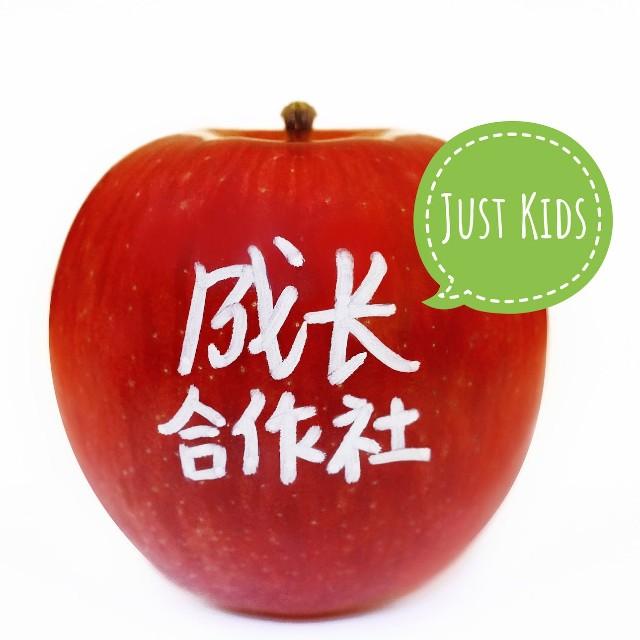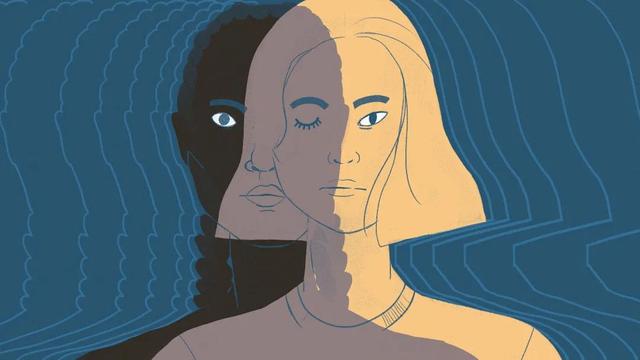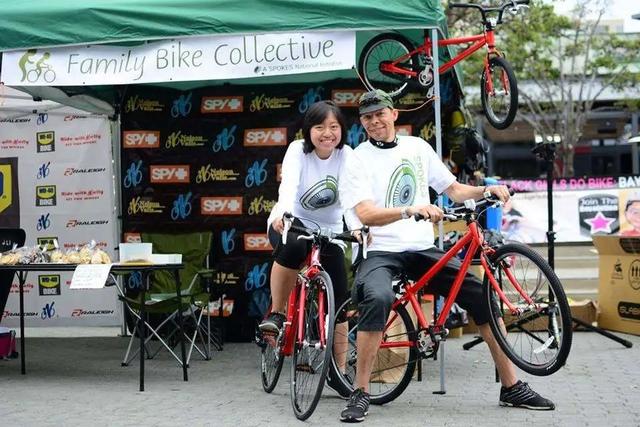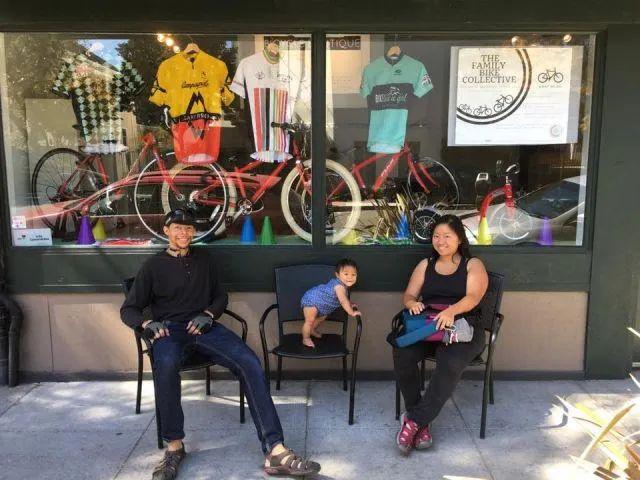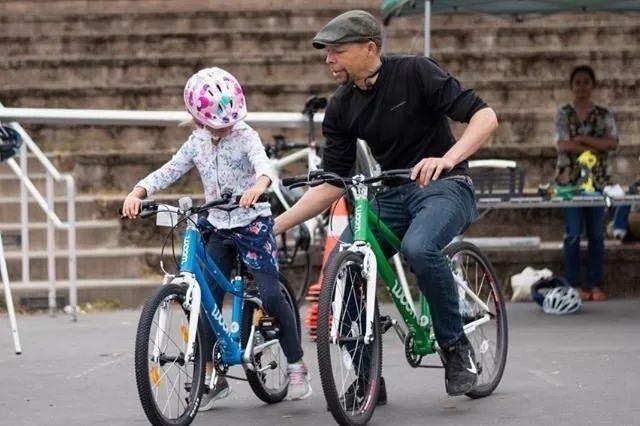我是華人,我的丈夫是黑人,這是我們經曆的現實
紐約時間 6/21
The following article is from 成長合作社 Author Lin
成長合作社
孩子最需要的,是和他們共同成長的父母。本號更新很慢,文章很長,內容很結棍。
生活在黑與黃之間
作者 | Lin
翻譯 | 小樂,鳳潔
小樂寫在前面:
剛搬來伯克利不久的有一天, 我騎車經過了一個玩具店,想進去給逛逛。但發現店門口沒有停自行車的欄杆。正在我推著車幹著急的時候,玩具店旁邊的自行車店裏出來一個黑人男性,他和善的告訴我可以把車放在他們店裏。我不好意思的把車推進他的店,一眼就看見店裏有很多小孩子玩具,一個開心的坐在地上玩兒的一歲左右的小姑娘,和一個挂著笑容的亞洲女人。
當時匆忙,沒有多聊,卻也記住了陌生人的善意和忙碌卻溫暖的一家人。
後來在在開始上幼兒園托班,才發現那個小姑娘是比在在大幾個月的“學姐” K。她的爸爸,也就是那個自行車行的主人Brian,總會騎著一個明亮的黃色自行車,放著輕快的音樂,風一般的踩著車接送女兒。後來也經常在學校碰到了K的媽媽,Lin, 發現原來她是會說中文的新加坡華人, 于是我們兩個經常在學校碰到就用中文聊聊天,覺得她樂呵又爽朗的。
有一次公共假期,家長們約著一起帶孩子去playdate, Lin也帶著K和剛出生的弟弟去了。我坐在她旁邊,聽到她打電話,似乎是因爲對方在yelp上爲了一個5刀的零件弄錯而留了差評,她提出了各種彌補的方法, 請求對方修改差評。聲音裏滿是生活的疲憊。
後來在臉書加了好友,發現了Lin的另一面。她轉發的新聞或自己寫的評論,讀起來頗專業,畫畫和做首飾也都讓我驚豔。尤其是最近幾個月關于新冠和抗議遊行,她發的內容都是優質又視角多元。作爲一位和非裔結婚的華裔,她對族裔問題的體驗和表達裏有複雜又微妙的層次。于是哪怕知道她要照顧兩個孩子,做家務,幫忙自行車店,還是嘗試和她約稿。沒想到她立刻答應了,兩周後發來了這篇精彩的文章。
族裔問題背後的曆史、政治、法律、社會等等知識都很複雜。不同立場的人們也很容易爭吵起來,各種拉黑。但讓我們先放下那些理論,研究,數據,爭端,讓一個華人媽媽帶我們看看她的婚姻讓她看到了什麽曾經未知的。作爲兩個深膚色孩子的媽媽,又和我們的養育方式有什麽不一樣。
Lin的文章是用英語寫的,中文是我和朋友鳳潔一起翻譯的。可以讀英文的朋友,還是推薦去讀後面的英文部分,她寫的比我們翻譯的好得多。只看中文部分的朋友,也請讀完正文後,拉到最後,有補後記。
我曾經在亞洲和美國做過十幾年記者, 報道過國際災難和救援,調查過全球犯罪和移民政治,挑戰過聯合國,寫過毒品交易,也憂慮過很多很多人的生死。但這是我人生裏最難寫的一篇文章。
爲什麽?因爲我將談到丈夫和孩子的生活,還有面對不斷想到他們有可能死亡的現實。
我出生和成長在新加坡,有各種膚色的朋友,同學,鄰居和同事。2012年,我搬來美國,到伯克利大學讀研究生院。當時我只想專心學習,爲未來的事業鋪路。我一直覺得自己是一個終生學習者,因此選擇從事新聞業。我享受每一天的大量學習。但這些學習都沒爲我的婚姻生活做好准備。
我是一個新加坡華人女性,嫁給了一個美國非裔男性。我們和4歲的女兒,2歲的兒子一起住在加州伯克利,親人都不在附近。在過去的一周, 我:
- 告訴我的丈夫給我們的自行車店釘上保護的木板,因爲有打砸的情況出現。
- 給我們的商店加裝更多的監控攝像頭。
- 詢問我的丈夫他去工作是否還安全。
- 在女兒問我:“ 爸爸會活著回來麽?”的時候對她撒了謊。
- 把手機的指紋開機功能撤銷,保持輸入六位密碼,這樣警察過就不能強迫我開機。
- 伯克利警察局因爲George Floyd案件發表公開信,表達這樣的行爲和他們的宿命和價值觀相違背。然後我給他們寫了信,問他們如果我丈夫的脖子被警察壓在膝蓋下,我是否應該打911尋求幫助。他們的發言人,同樣也是一位非裔美國人在給我的回信裏這麽說 “事實上,我也沒有一個好的答案可以給你。”
作爲一個在新加坡長大的華人,我擁有不用注意膚色的特權。我沒有注意過自己的和朋友的膚色。我沒怎麽考慮過種族主義這件事兒,這並不妨礙我的生活。
現在我知道了–僅僅因爲我沒有考慮過,不代表在新加坡和我一起大笑的朋友們沒有被種族主義傷害過。
圖爲Lin和Brian
我在到達美國的第一周遇到了我的丈夫。在一個綠色能源汽車的活動上,他坐在一排自行車旁邊。我很好奇,問他在幹嘛。他氣呼呼告訴我在停車。我想反正再也不會見到他,就可以放心提問。我拉了張椅子坐下來開始和他說話。整個過程中我都沒想過他的種族,也沒注意他是一個黑人。這是一種特權。
後來聊到他對我們第一次對話的感受時,他說:“ 我很吃驚一個亞洲女人和我說話。亞洲女人不和黑人男人說話的。她們會把目光轉移,快速走開。”
在我們結婚五年後,這是我學到的:
黑人男性的生活更難
有一天,我和丈夫聊到各自童年最早的記憶。我的是音樂課,和朋友在公園玩兒,和家裏人分享食物。而他最早的記憶是這樣:“ 我四歲的時候,一家人去海灘。有一群男孩正在玩馬可波羅(一種扔球遊戲),他們說‘別和那個黑鬼 (Negro)玩。’”
我丈夫在小時候非常勤奮好學,他在家裏五個孩子最小,學的也很快。有一天,他去找老師想要額外的功課。老師說:“ 你憑什麽覺得你比其他人更好?回你的座位去。”。他從那個學校退學,進入了一家私立學校,從14歲開始在餐館後廚打工,支撐自己念完書。
有一天我跟在他後面叨唠爲什麽家裏到處都是他在超市買東西的收據。我叫他把這些收據丟掉,我自己經常直接告訴收銀員不要發票。但我丈夫說:“ 我絕不能那樣做。”
兩天後, 我在Safeway 買了一些壽司。付錢後,一個男人追著我出來,在馬路中間攔住我,指責我偷竊並要求看收據。這是我人生第一次被人說從超市偷東西,盡管十幾歲的時候我還真做過這樣的事兒。當我在嬰兒車的籃子裏翻找收據的時候,心裏暗暗慶幸虧好前兩天剛和丈夫有那樣的對話。後來,超市有兩個認識我的黑人員工走了過來和我聊了幾句,他們說:“我們理解你會很生氣。哪怕在這裏工作,我們都會保留午餐買的每樣食物的收據。”
黑人不會把收據丟掉。
生與死
很多人都曾經曆過一兩次這樣的情況。那是可怕又傷人的經曆。但如果你是黑人,這種情況的發生會更加頻繁,無休無止,且殘酷無情。非裔男性時刻都在爲活下來努力,爲把他們的名字從警察的誣陷和毒品中撇清關系,他們的家庭成員也持續焦慮怎樣做可以防止情況升級成生死離別。
在以上任何這種情況中,如果警察在場,我丈夫被殺害的風險會急劇上升。非裔美國人被警察殺害的幾率是白人男性的2.5倍。
在新加坡,我被教育如果遇到危險就叫警察。但今天,當我覺得需要找警察的時候,腦中的第一念頭是我的丈夫在哪裏。我的腦中有一根弦緊繃著,那就是和警察打交道會將我的丈夫置于風險之中。他們槍擊他的速度比我能保護他的速度快。子彈比話語跑得快。
在電視劇或電影中,妻子經常會把丈夫的晚歸和出軌聯系起來。我的婚姻不允許存在疑心的空間。我告訴丈夫到達和離開車行都要給我發消息。如果他比平時回來晚了,我最大的恐懼是他被警察攔下了。而我每一分鍾都會在焦慮即將聽到有黑人被殺,或接到電話讓我去確認屍體。我必須准備好這時候該如何安置孩子。如果你從未有過這種體會,你是擁有特權的。
在不是黑人的家庭,家長鼓勵孩子對警察友好。在我們家,兩個孩子都知道當我們叫他們名字的時候要立刻回應。如果我們讓他們停止說話,他們也會立刻做到。這聽起來也許殘酷。但當警察試圖找我丈夫問題的時候,哪怕女兒簡單的說 “我爸爸給我洗澡”, 都會被認爲是不當行爲。哪怕她只有四歲。同樣的話從另一個孩子嘴裏說出來也許又可愛又能讓一個白人男性顯得愛家,卻可以被用來指控黑人男性是性侵犯。
黑人孩子必須早早開始注意他們說的話。因爲他們的話可能讓父親喪命。
剛到美國的有一天,我和一個黑人朋友在城裏火車站外面坐著聊天,這時有警察向我們走來。一個警察先問我:“你沒事兒吧?”我表示一切都好。他們接著要求我的朋友出示他的身份證件。我驚恐的看著警察檢查我朋友的犯罪記錄。在什麽都沒查出來之後,他們告訴我朋友他運氣不錯。
讓黑人不進監獄的是運氣,不是事實。
你們很多人可能聽說了George Floyd被殺害的事情,一個男人被警察的膝蓋壓住脖子8分46秒,窒息而死。
從看了視頻以後,我想了數千遍如果那是我丈夫,我該怎麽辦。是的,看著視頻裏那個男人,我像著魔了似的恐懼我丈夫會是下一個。一個店主因爲覺得George想用20美元假鈔而打電話叫了警察。至今沒有人去證明那20刀是假的。作爲一個黑人店主的妻子,我不會爲了20刀叫警察。
而警察並不會因爲這樣的原因殺掉一個淺色皮膚的人。
我的華人特權
我和丈夫最大的不同在于,我是一個可愛的亞洲女生,而我的丈夫是一個可怕的黑人男性。人們有時候不把我當回事兒,但那並不致命。種族歧視卻會殺人。人們已經被好萊塢電影洗腦,覺得黑人就是殺人犯和惡棍。沒人會覺得黑人也可以很友好,也可以教孩子們騎自行車、教導需要幫助的年輕人、也可以在舊金山這樣一個被認爲充滿危險、肮髒和毒品的城市開設一個課後輔導項目。是的,這些都是我丈夫做的事。
2015年,我經曆了人生中最痛苦的一件事。我們剛在加州的奧克蘭開了一家自行車店。但我們不知道房東是一個來自韓國的,有過驅逐有色人種曆史的種族主義者。一開始的騷擾漸漸變得無法忍受,我們取得了一個針對房東的禁制令。他開始指使一些惡棍到我們店裏搗亂。我那時還在舊金山工作,我丈夫獨自在店裏工作,所以我每天都提心吊膽。
一個晚上,房東站在我們店門外,對著我們叫喊一些髒話,把我們的顧客都嚇走了。他朝著我們店走來,我站在他和我丈夫中間,把他倆隔開。我只是一個女人,懷裏還抱著一個新生兒。但我知道,這個人很可能傷害我丈夫卻不會受到法律的制裁,但他不敢貿然傷害一個懷抱孩子的女人。
這是我的特權。
一個星期之後,他趁我丈夫一個人在店裏的時候來到我們店裏,跟我先生說:“我一只手就能殺死你“。然後他掐住我先生的喉嚨。我先生迅速抽身出來,並走到店後面打電話報警。警察到了之後,房東說是我丈夫先動手的,他要告我丈夫虐待老人。他不知道我們有安全攝像頭錄像。
在法庭上,當錄像顯示他是如何扼住我丈夫並且尾隨我他到後場的時候,他所謂“虐待老人“的誣告立刻被推翻了。最後,這個人被判禁止進入我們的商店。
如果你還覺得這不是個問題。請設想如果是一個黑人走進一個亞洲人開的商店,並試圖扼死老板。
最簡單的答案是,他會被擊斃。店主人可以開槍打死他,並說是自我防衛。警察也會開槍,因爲他是一個帶來“威脅“的人。無論是哪種,黑人都很難活下來。就像喬治因爲20美金被殺了一樣。
這就是爲什麽,我們從未因爲20美金的假鈔報警。我們不歡迎你,但不會爲此報警。
Brian常在社區活動中義務教孩子騎車,他喜歡孩子體會到自由的感覺。
如果這次經曆聽起來像是個簡單的不愉快,那麽你還要知道,我曾在法庭外拜托陌生人幫我抱一會兒孩子,只爲能在法庭裏站在我先生身旁。沒有人應該被迫在自己的baby和先生之間做出選擇,但我必須這麽做,因爲我的愛人是黑人。
那次慘痛的經曆之後,爲了避開他,我們的商店被迫關門,重新在伯克利開新店。這讓我們損失了大約10萬美元,而另一場厄運又開始了。美國總是不缺種族主義者的。作爲在北伯克利唯一一家黑人開的商店,總有善良友好的人理解我們的掙紮,但也有些人對我們經曆的現實完全不一樣缺乏理解。
當在新聞裏看到睡夢中的Breonna Taylor被闖入自己家的警察開槍射殺,我們甚至在自己家也無法安眠。我們又得知她的男朋友在警察沒有自報家門的情況下向殺害他女友的人反擊,卻被指控謀殺。這就像是說,法律只允許白人保衛自己的家。只有白人可以殺人。只有白人可以在黑夜安睡。
兩年前,我告訴一個白人男性我們沒有他想要的一個自行車零件,卻被扇了一巴掌。第二天,那個男人又回來辱罵我丈夫。他還說:“你最好買了好保險,因爲我會搞砸你的生意、你的妻子和孩子。”
我先生報警了。警察來了,他們試圖逮捕我先生,而那個白人迅速走掉了。
一開始,警察告訴我丈夫,他什麽也做不了。但當我丈夫對警察說:“如果是我,一個黑人,對你說,我要搞砸你的生意、傷害你的妻子和孩子、毀了你的一切?你會作何感想?你會派一隊人去追他。” 然後警察說他理解了。
美國的很多事情非常戲劇化,兩天後,警察告訴我們,他們已經逮捕了那個人。但是四天之後,我在街上碰到了這個人。盡管我我迅速的過到馬路對面,他還是看到了我,並對我大聲辱罵種族歧視的話語,詛咒我們的家庭,聲音大到所有人都能聽見。後來警察告訴我們,他被釋放了,因爲警察也不能做什麽。言論自由只屬于白人。
爲了保護我們,警察幫我們申請了一個限制他靠近我們商店和住所的禁止令。他不得進入我們9米的距離以內。我們真希望一切就這麽結束了。
但是去年聖誕夜,在我們一家四口回家的時候發現有人在跟蹤我們。我們剛注意到他,他就開始對我們辱罵,威脅我們他將會如何傷害我們、殺掉我們。我們距離家門也就4,5米,還帶著兩個幼小的孩子。我用了唯一能想到的辦法——用我的華人特權保護我的家人。
當我處于戰鬥或逃跑狀態 (fight or flight mode),我讓丈夫帶孩子立刻進家門。
我先生沒有跟我爭論。
我很高興他沒有。
我很感恩他沒有。
事實是,在美國,我更容易活下來。
獨自站在昏暗的街道上,我一邊打911 報警、求助,那個男人離我三米遠,還在大喊大叫的威脅我。
我一直盯著他。有一個瞬間他移開了視線,我急速沖回家。
從窗子裏,我看到他繼續在黑夜裏罵了10多分鍾才離開。
後來警察來了,他站在我家客廳,女兒安靜地看著我們談話,兒子擺弄一個玩具卡車。“哔,哔,哔”,我兒子一邊玩,一邊用小卡車頂警察的腳。我瞪了他。
警察一邊接過卡車,推著它來來回回和我兒子玩,一邊告訴我的黑人丈夫:“即使在防禦中你也沒有回應他,這很好,因爲要不然也許你就會被捕了。”
Lin 的英文原文
Living Black and Yellow
I have worked as a journalist for over a decade, throughout Asia and the US. I have covered international disasters and recovery efforts, investigated global crime and immigration politics, challenged the United Nations, written about drug lords and had to think about the deaths of many, many people. But this is the hardest piece I have had to write in my life.
Why? Because we are going to talk about the lives of my husband and children and how my reality includes thinking of all the ways they might die before it happens.
—
I was born and raised in Singapore with friends, classmates, neighbors, and coworkers of all skin colors. In 2012, I moved to the US to attend UC Berkeley. As a graduate student, my thoughts were focused on learning in school and building my career. I had always thought of myself as a lifelong learner, it’s why I chose to go into journalism. I enjoy the expectation that I learn intensely every day. But nothing prepared me for my married life.
I am a Singaporean Chinese woman married to an African American man. Together we live in Berkeley, California, with our 4-year-old daughter and 2-year old son with no family close by. In the last week, I have:
● Asked my husband to board up our bicycle shop because of the presence of a caravan of looters
● Added additional security cameras to our shop
● Asked my husband if he would be safe going to work
● Lied to my daughter when she asked: “Will daddy come home alive?”
● Removed the fingerprint id ability on my mobile phone in favor of a six-digit code that the police cannot force me to surrender
● Written a letter to the Berkeley Police Department in response to their announcement that the murder of George Floyd went against their mission, vision and values. I asked if I could call 911 and expect help if my husband were under the knee of a police officer. Their spokesperson, also an African American man wrote in response: “The truth is: I don’t know if there is a good answer to your question.”
As a Chinese person in Singapore, I had the privilege of not noticing skin color. I didn’t notice mine, and I didn’t notice my friends’. I did not give much thought to racism and no one made it bother me.
I now know – Just because I didn’t think about it doesn’t mean my friends who smiled and laughed along with me were not traumatized by racism in Singapore.
I met my husband the first weekend I arrived in the US. At a green car event, there he was, sitting next to a row of bicycles. I was curious and asked him what he was doing. After he grumpily told me he was parking bicycles, I decided that since I would never see him again, I could go on asking whatever I wanted to know. I pulled up a chair and sat down. At no point did I think about race or notice that he was a black man. That is privilege.
When I later asked him what he thought of me during our first conversation, he said: “I was shocked that an Asian woman was talking to me. Asian women don’t talk to black men. They look away, sometimes walk away quickly.”
In five years since we’ve married, here’s what I’ve learned:
Black men have it harder
One[2] day, my husband and I were talking about our earliest memories. Mine was of music lessons, playing with friends at the playground, and sharing food with family. This was one of his earliest memories: “When I was 4, our family went to the beach. I remember a group of boys playing Marco Polo (A game where kids throw the ball to each other and the kid in the middle tries to catch it). They said: “Don’t play with the n—-r. ”
As a child, my husband loved to learn, and as the youngest of five, learned fast. One day, he went to his teacher to ask for more work. He remembers his teacher saying: “What makes you think you’re better than the others? Go back to your seat.” He left that school, enrolled himself in a private school, and started working in a restaurant kitchen at 14 to put himself through school.
Black kids are not told they can be anything they want to be. They’re told to get back in their place.
One[4] day, I was nagging him about all the grocery shopping receipts around the house. I asked him to throw them away and then I realized that sometimes, I just told the cashier that I didn’t need a receipt. My husband said: “I can never do that.”
Two days later, I bought some sushi from a Safeway supermarket. After paying, a man ran after me and stopped me in the middle of the road, accused me of stealing, and asked to see my receipt. It is the first time in my life that I have been accused of stealing from a supermarket, even when I did shoplift when I was a teenager. As I dug through the basket of my baby stroller, I thought to myself how lucky I was to have kept the receipt after having that chat with my husband. Later on, two black staff members of the supermarket who knew me came and shared: “We understand how angry you must be. We work here, and we keep the receipts of every single thing we buy during our lunch break to eat.”
Black people never throw away receipts.
Life and death
Most[5] people have experienced one or two of the situations described above in their lifetime. They are annoying and hurtful. But when you’re black, they happen all the time, constant, unrelenting, and sometimes concurrently. Black men are constantly fighting to stay alive, to clear their names of false accusations and drugs[6] planted by the police, and their families are constantly thinking of what they can to prevent them from escalating into life or death situations.
In any of the instances, if the police were called, my husband’s risk of being killed increases dramatically. Black Americans are 2.5 times more likely than whites to be killed by the police.
Having grown up in Singapore, I was taught to call the police if I were in danger. Today, the first thing I think of when I feel like I need the police is where my husband is. I am always conscious of the high possibility that engaging the police places my husband at risk. They can shoot him faster than I can defend him. Bullets fly faster than words.
In TV dramas and movies, wives often suspect that their husbands are having affairs when he comes home late from work. In our marriage, there is no room for distrust. I tell my husband to text me when he arrives at work, and before he leaves work. If he takes longer than usual to get home, my biggest fear is that he’s been stopped by the police. My anxiety builds up with each minute of the possibility of hearing that a black man’s been killed, or getting the call to go identify a body. I plan what to do with the children for situations like this. If you’ve never had this thought, you have privilege.
In non-black families, children are encouraged to be friendly with police officers. In our family, both our children know that when we call their names, they return to us immediately. And if we tell them to shut up, they do so immediately. This may sound harsh. But a police officer looking to find fault with my husband can claim inappropriate behavior if my daughter were to say something as simple as: “My daddy bathes me.” It doesn’t matter that she is 4 years old. The same story that is cute and makes a white man a “family man” can be used to accuse black men of being sexual predators.
Black children must learn to watch their mouths early. Their words can cost them their fathers.
When I first arrived in the US, I was sitting outside a popular downtown train station with my friend who was black when the police approached us. An officer first asked me: “Are you ok?”. I said that I was, and they then asked my friend for his ID. I watched in horror as they called in their colleagues to ask them to run his ID to check for outstanding warrants after he told them he had none. When they were done, they told him that he was lucky.
Luck keeps black people out of prisons. Not the truth.
Many of you have probably heard of the murder of George Floyd, a man who suffocated to death when a police officer knelt on his neck for 8 minutes and 46 seconds.
Since watching the video, I have thought thousands of times what I should do if that were my husband. Yes, I look at that black man and my mind and body feel poisoned with fear that my husband could be next. A shop owner said he called the police on George because he tried to use a fake $20 bill. Till today, no one has proven that the $20 was fake, and as a wife to a black male business owner, I would not call the police over a $20.
Because not thinking that the police will kill people comes from privilege .
My Chinese privilege
The[10] main difference between my husband and I, is that I am a cute Asian woman and he is a scary black man. People don’t take me seriously sometimes, but that doesn’t kill. Racism kills and people have absorbed Hollywood’s portrayal of black men as murderers and thugs. There is no room for the black man who is a community man, who teaches children to ride bicycles, who mentors at-risk youths, who started after-school programs to take care of teens in the Tenderloin in San Francisco, one of the areas many people identify as dangerous, dirty, and drugged out. Yes, my husband did all that.
In 2015, I had one of my most traumatic experiences in my life. We had just opened our bicycle shop in Oakland, California. What we did not know was that our landlord was a Korean racist who had a history of evicting small businesses of color. What started as harassment became so unbearable that we obtained a restraining order against him. He began sending thugs to the bike shop and I was scared every day as my husband worked in the shop alone. I had a job in San Francisco then.
One night, he stood outside our shop, yelling and screaming racist slurs, scaring our customers and keeping them away. As he stepped towards our shop, I stepped in front of my husband, between him and the landlord. I was just a woman and I carried my newborn baby on my body in front. All I knew was that this man might hurt my husband and get away, but he would think twice about hitting a woman with a baby.
That is my privilege.
A week later, he came to our shop when my husband was alone, and told him: “I can kill you with one hand”. He then strangled my husband. My husband quickly broke his chokehold and walked to the back of the shop to call the police. When the police arrived, the landlord said that my husband had hit him first and that he wanted to sue him for elder abuse. He did not know that we had security cameras.
His elder abuse charge was thrown out of court when the cameras showed him strangling my husband and then stalking him when my husband tried to walk away. In the end, the man was given probation for coming to our business and strangling my husband on camera.
If you don’t think this is a problem, please think about what would have happened to a black man if he had gone into an Asian business and strangled the owner.
The easy answer is: he would be dead. The owner could shoot him and claim defense. The police could shoot him because he was “threatening”. Whatever the method, the black man would likely not have lived. Not when George was killed for $20.
That is why we will never call the police because of a fake $20 bill. You are not welcome in our business, but no need for the police.
If this experience sounds like a simple ordeal, just know that I begged strangers to help me hold my newborn baby outside the courtroom in Oakland so I could go in and stand with my husband. No one should have to choose between their baby and husband, but I did because the man I love is black.
As soon as that traumatic experience ended, with about $100,000 in losses from having to close the business to deal with him and move to Berkeley, another major one started. There is no shortage of racists in America. There are great people, kind souls who understand our struggle as the only black-owned business in North Berkeley, the area we live in, but many also live with a lack of understanding that our reality is completely different from theirs.
When we look at the news and see Breonna Taylor killed in her sleep because the police barged into her house and shot her, we cannot rest well even in our homes. When we learn that her boyfriend was charged for murder because he fired back at the people who killed his girlfriend because they did not announce that they were the police, it acts as a law enforcement reminder that only white people can defend their home. Only white people can kill. Only white people can rest at night.
Two years ago, a white man spat in my face after I told him that we didn’t have a bike part he wanted. The next day, he came back and called my husband a n—-r, and said: “I hope you have good insurance because I am going to f— up your business, your wife and your baby.”
My husband called the police. When they arrived, they tried to arrest my husband and the white man quickly left.
Initially, the police officer told my husband he could not do anything. It was only when my husband said to the officer: “How would you feel, if I, a black man, told you I am coming after your business, wife and child? Your everything? You would send your whole squad after him,” that the officer said he understood now.
Just like America often is, many things are theatrical. The police told us they had arrested the man two days later. But four days later, I saw the same man walking down the street. I crossed the street as fast as I could but he saw me and began shouting racist slurs and cursed our family loud enough for everyone to hear. Later on, the police told us he had been let out because they couldn’t do anything. Freedom of speech belongs to white people.
To protect us, the police obtained a restraining order for our family and business against him. He was not allowed to come within 30 feet of us. We hoped it would be the end of everything.
But last year, as our family of four came home on Christmas Eve, we noticed someone following us. As soon as we did, he began shouting racial slurs, telling us how he was going to hurt and kill us. We were about 15 feet from our home and had our baby and toddler with us. I did the only thing I knew – I used my Chinese privilege to protect my family.
In fight or flight mode, I told my husband to take the kids and go in. Now.
My husband did not argue.
And I’m glad he didn’t.
I’m thankful he didn’t.
The fact is, in America, I am more likely to survive any interaction.
Alone on the dimly-lit streets, I faced the man who stood about 10 feet from me, shouting and gesturing as I called 911 and asked for help.
I kept my eyes on him. And when for a moment he looked away, I ran home.
From a window, I watched as he continued shouting into the night for 10 more minutes before leaving.
Later that night, a police officer stood in our living room while my daughter silently watched us talk and my son played with a toy truck. “Beep, beep, beep,” he said as he nudged the police officer’s foot with his truck. I glared at him.
As the officer took the truck and pushed it back and forth to play with my son, he said to my black husband: “It’s good you did not respond to him, even in defense, because you would have been arrested”
小樂補後記:
就在這周,Lin和Brian的自行車店在一個深夜被一個白人和一個黑人砸碎了大門,偷走了大約2萬美元的自行車和配件。他們的監控拍下了罪犯的樣貌和案件全過程。他們也報了警,自己做了大量調查,已經查到了其中的一名罪犯的姓名和他的地址。但是伯克利警察局分管他們這個案件的檢查放假一周,于是案件被放在一邊沒人管,眼睜睜看著時間一天天過去。他們拿著證據去警察局,卻被告知除非有目擊證人看到那位嫌疑人拿著他們的自行車進家門,否則警察也不能做什麽。
她們的經曆讓我看到了我特別喜愛的小城的另一面。但也許對于另一些群體,這另一面才是他們每一天每一年真實的生活。
另一方面,Lin在募捐網站建立的網頁上,已經迅速收到了將近1.7萬美元的捐款,社區裏的人們紛紛伸出援手。
有朋友建議他們高調宣傳他們車行是黑人店主,在如今的Black Lives Matter的大潮中,會獲得更多關注,然後對警局施壓。Lin 拒絕了這樣的建議,她說我們要的不是同情,而是公正。
